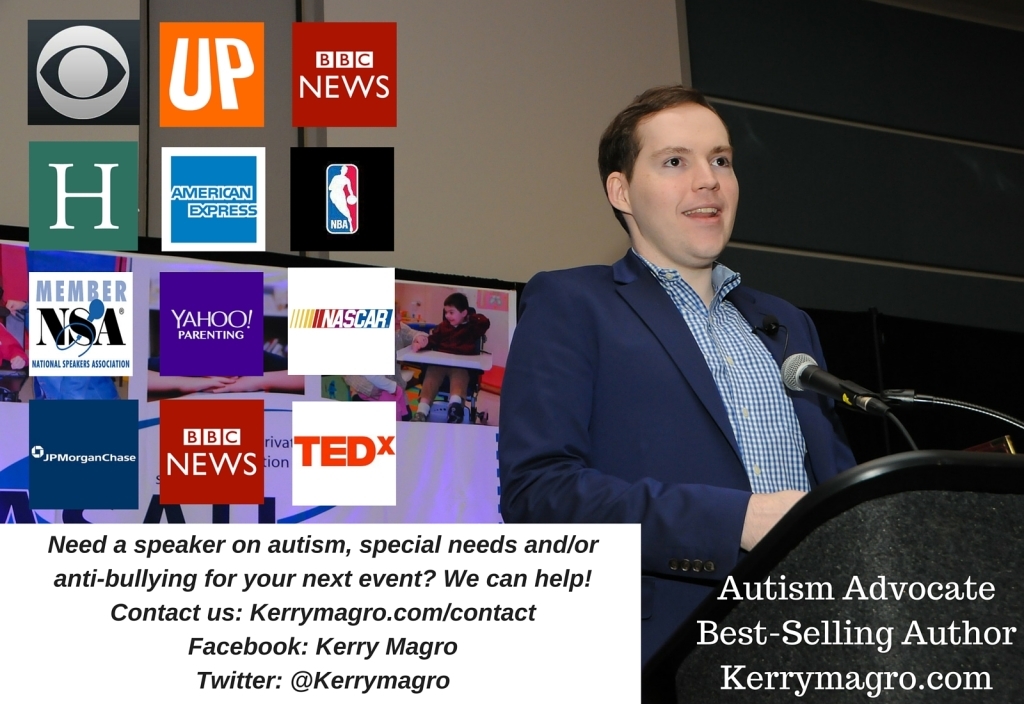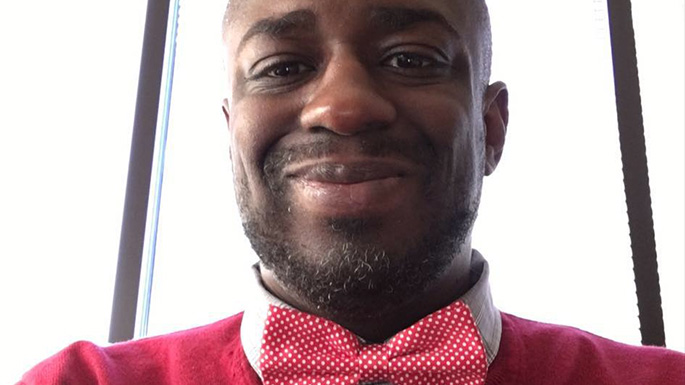This guest post is by Dr. Lamar Hardwick who is a husband, father of three, and a pastor. After years of struggling with social anxiety, sensory processing, and other related issues, Lamar was diagnosed with autism in 2014 at age 36. Today he uses his platform as a community leader to be an autism advocate helping to create awareness, encourage acceptance, and mentor young advocates. You can read more from him at www.autismpastor.com.
March 8th, 2015 I did one of the most courageous things that I’ve ever done. This leap of faith ranks right up there with jumping the broom and having 3 children. On March 8th, 2015 I told the world about my autism diagnosis.
I spent the better half of 2014 wrestling with the idea that I may be on the autism spectrum. I’m not exactly sure when my suspicions began, but at age 36 I was almost certain that I couldn’t be autistic because I thought that I was “just fine”, until I realized that my “fine” was actually pretty different from everyone else’s definition of “fine.” That’s when I began to take an honest look in the mirror, not because I didn’t like what I saw, but because I wanted to redefine “fine.”
I’ve lived my entire life pretty much the same way. I’ve never had a ton of friends, but I was fine with that, even when others thought it was strange. I’ve always preferred to be alone, and while I do like hanging out occasionally, I see nothing wrong with sitting at home alone on the weekend. I’m just fine with that. I almost always miss the point of sarcastic jokes and comments, but I’ve never had an issue with that, in fact I just thought to myself “It’s not that I don’t get what you’re saying, you’re just not that funny”, and I was fine with that.
Honestly, I’ve known I was a little different ever since I was a teenager. My interests were very limited, I didn’t need or like to be the center of attention, and most people thought I barely talked. I was fine with that. It’s just who I am and everyone who really knew me knew that I wasn’t strange, I was just Lamar. When I did finally get a diagnosis as an adult and I shared my new discovery with the world, most people in my life had a similar response. “We would never know that something was wrong with you, you seem just fine.”
I am fine, in fact I am better than fine. I am Lamar and my “fine” has always been defined by me. You see the same reason that you don’t think I am autistic is the exact same reason I didn’t think I was autistic. I am fine because I don’t allow labels to limit me. I never have.
Let’s be clear, I am autistic. When I received my diagnosis I didn’t need a second opinion. I knew it was right. I’ve always had sensory issues, I just didn’t know that everyone didn’t hear, see, and smell the world the way I did. I’ve always had trouble with facial expressions, body language, and social cues I just expected people to say what they meant. I don’t assume and I certainly didn’t live in the world of non-verbal communication and I as fine with that.
The real reason most people don’t think I am autistic is because like me, they have had very little education about what autism actually is. Autism has received a lot of attention in the last decade, however the harsh reality is that there are still millions of people who don’t know nearly enough about autism, what it is and how it affects people.
I should know, I was one of those people. Until my diagnosis my understanding of autism was reduced to a stereotype. The vast majority of people lean to one end of the spectrum or another in order to define what autism is. The real reason that most people don’t believe that I am autistic is simply because I can talk and because of the fact that I am verbal, I must be fine. I believed the same thing, but what I believed help perpetuate a stereotype about autistic people. The problem with stereotypes is that it silences so many autistic people and it provides a singular definition of “fine.” Stereotypes allow for one singular expression of what it means to be socially acceptable. Stereotypes create one singular narrative about who people should be and how they should behave. Stereotypes, whether intentional or not, are the reason why I didn’t know that I was autistic and it’s the reason that most people don’t think I am autistic today.
We have a lot of work to do to educate more people about autism. Autism can’t be reduced to how one externally functions in the eyes of society. The ability to talk doesn’t make me any less autistic than those who are non-verbal. On the other hand the inability to talk doesn’t make other autistic people any less competent or valuable than those who are verbal. Autism is not only found in children. You don’t out grow autism, and autistic children grow up to be autistic adults. Autism is truly a spectrum, and what I have both observed and learned since my diagnosis is that it is much easier to search for labels and stereotypes than it is to search for ways to support the autism community by searching for the significance in each individual human life.
Since being diagnosed, I’ve learned a lot about myself, but even more importantly I have learned a lot about why I knew nothing about myself for so many years. Since being diagnosed I have been confronted with stereotypes about autism that create the idea that “fine” is defined by one group of people so my goal is to make that “fine” harder to find. When we educate the world about autism in both children and adults, verbal and non-verbal we make it much more difficult for the world to subscribe to one idea of “fine” and in the end we can aggressively redefine what it means to be “fine”, what it means to be social, what it means to be successful, what it means to be hopeful, what it means to be valuable, and most importantly what it means to be human.
You can read more from Lamar at www.autismpastor.com















